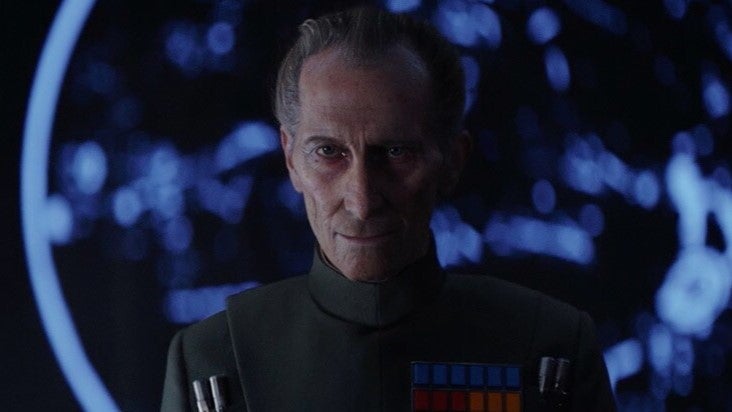Star Wars movie sued for digital recreation of Peter Cushing’s appearance
Cushing’s likeness was recreated more than 20 years after his death for Rogue One: A Star Wars Story
Your support helps us to tell the story
From reproductive rights to climate change to Big Tech, The Independent is on the ground when the story is developing. Whether it's investigating the financials of Elon Musk's pro-Trump PAC or producing our latest documentary, 'The A Word', which shines a light on the American women fighting for reproductive rights, we know how important it is to parse out the facts from the messaging.
At such a critical moment in US history, we need reporters on the ground. Your donation allows us to keep sending journalists to speak to both sides of the story.
The Independent is trusted by Americans across the entire political spectrum. And unlike many other quality news outlets, we choose not to lock Americans out of our reporting and analysis with paywalls. We believe quality journalism should be available to everyone, paid for by those who can afford it.
Your support makes all the difference.The makers of Rogue One: A Star Wars Story are being sued over the image rights of actor Peter Cushing, whose image was resurrected for the 2016 film.
Cushing, who passed away in 1994 from cancer, had played the character Grand Moff Tarkin in the original Star Wars, A New Hope movie back in 1977.
Barring a small animated cameo in 2005’s Revenge of the Sith and younger version’s of the character, voiced by Stephen Stanton, Tarkin had been mostly unused in the Star Wars universe following Cushing’s passing.
However, Rogue One opted to resurrect the character and Cushing’s likeness for the critically acclaimed prequel starring Felicity Jones and Mikkelsen. Guy Henry, appeared as Cushing’s body double and voice while the late great actor’s face was digitally reconstructed.
The same film also used a digital recreation of a younger version of Carrie Fisher as Princess Leia.
In 2017, John Knoll, who served as VFX supervisor on Rogue One, said Cushing would have given the green light. “We weren’t doing anything that I think Peter Cushing would’ve objected to. I think this work was done with a great deal of affection and care,” he told Yahoo Movies.
Now one of Cushing’s oldest, Kevin Francis, is claiming that the actor never gave anyone permission to reproduce his appearance via special effects without his prior authorisation. The pair worked on a number of movies together including, The Ghoul, Legend of the Werewolf and The Masks of Death.
He claims that agreement was made between Cushing and himself in 1993, before the actor died while they were preparing to make a film called A Heritage of Horror which was never completed.
The Times reports that on Monday 9 September, the Disney group, who own the rights to Star Wars and made Rogue One, failed to have Francis’s claims for “unjust enrichment” dismissed from the High Court.

Watch Apple TV+ free for 7 days
New subscribers only. £8.99/mo. after free trial. Plan auto-renews until cancelled

Watch Apple TV+ free for 7 days
New subscribers only. £8.99/mo. after free trial. Plan auto-renews until cancelled
Francis’s company Tyburn Film Productions, has also brought forward claims against Rogue One producers Lunak Heavy Industries as well as Cushing’s agency and the executors of his estate.

Lucasfilms have protested the case claiming that they didn’t need permission to recreate Cushing’s image when A New Hope was remastered in 1997 and that $37,000 (£28,454.97) was paid to his estate to clear the use of his appearance.
After dimissing Disney’s appeal, High court judge Tom Mitcheson said: “I am also not persuaded that the case is unarguable to the standard required to give summary judgment or to strike it out.”
He added. “In an area of developing law it is very difficult to decide where the boundaries might lie in the absence of a full factual enquiry.”

Join our commenting forum
Join thought-provoking conversations, follow other Independent readers and see their replies
Comments